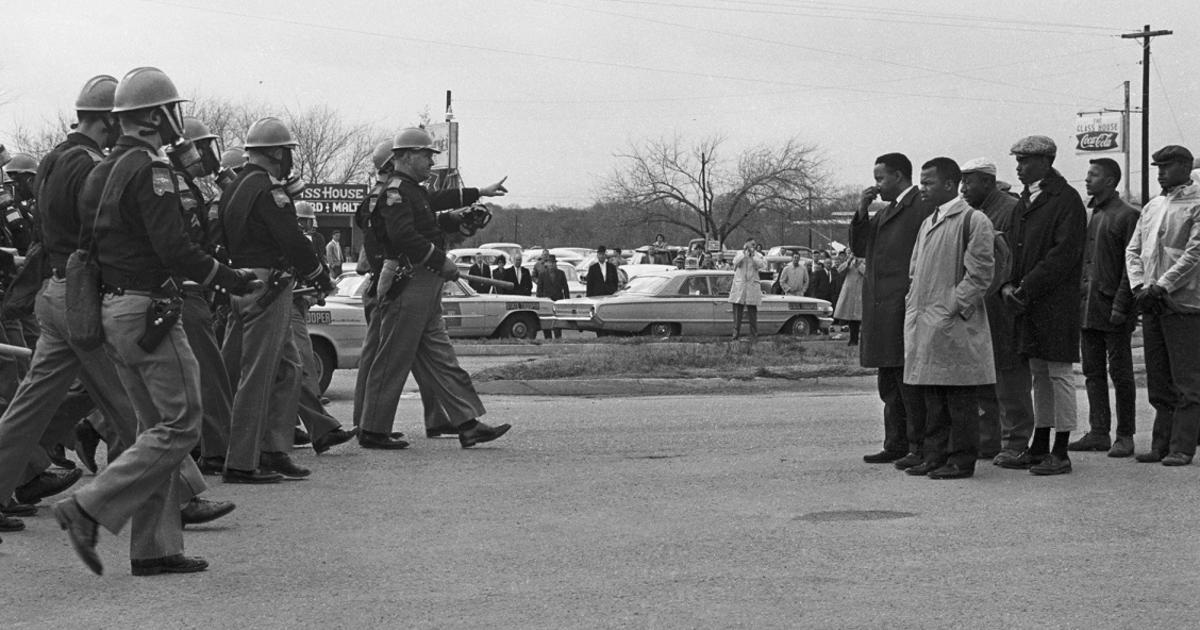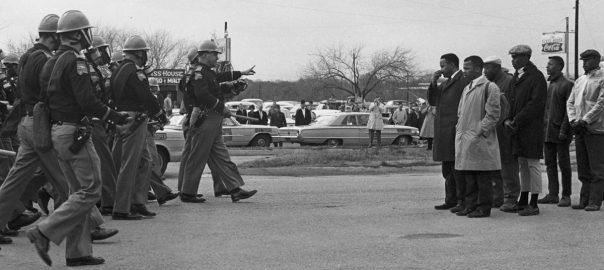A mashup of the Beatitudes and the enduring legacy of one man.
On February 21, 1940, on the outskirts of Troy Alabama, a baby Black boy was born. The third of ten children, his parents were sharecroppers, picking cotton, trying to make a living wage. Given how little money cotton picking brings, it was a family affair: each of the ten children had to do this backbreaking work.
The boy recalls he didn’t like doing it one bit. He was determined to get out of that field. Determined to get out of that hot sun.
Dreaming of better days, the boy wanted to be a minister when he grew up. To practice his future craft often he preached to the largest audience he could find. It was a crowd of 300… chickens. He recalled some chickens bowed their heads. Others would shake at his words. But he never could quite get them to say Amen 😊.
Growing up in the deeply segregated rural South, by the time he was six, the boy had only seen two white people in his life. This is, perhaps, the opposite of parts of rural Iowa that are nearby.
And when he did go into town, and encountered people with pigment lighter than his own, the experiences were, to put it mildly, less than ideal.
The boy had a great schoolteacher, who often told him, “read, my child, read!” And he did, devouring every book he could. Yet as a teenager, when he and his siblings went to the public library and asked for library cards they were told the library was for whites and not coloreds. They walked home empty handed that day.
As a teenager going into town he noticed signs that told him where he could and could not eat, drink, or sit, with labels like –
– White men only
– White women only
– No coloreds allowed
…he asked his parents what do those signs mean? They told him, “Boy, that’s the way it is. Don’t get in the way. Don’t get in trouble.”
At 17 the now young man met Rosa Parks, who helped organize the Montgomery Alabama bus boycott. A year later he met the Reverend Martin Luther King Jr., who encouraged him to get more involved in a movement growing by the day.
Not wanting to pick cotton, a voracious reader, wanting to become a preacher, and possessing the audacity to desire the same civil rights other Americans had one thing was clear: something must give.
The young man was going to get in trouble. Of this there was no doubt. But what kind of trouble would it be?
Scripture
Matthew’s beatitudes that begin the Sermon on the Mount is one of the most well-known passages in all of scripture. Data from BibleGateway.com suggests that, based on their search history, it is the 7th most popular scripture searched on their site.
A benefit of passages this well known is they often end up being referenced in pop culture. Consider these famous lines from the 1979 Monty Python movie Life of Brian:
Person 1: What did he say?
Person 2: I think it was Blessed are the cheesemakers.
Person 1: What’s so special about the cheesemakers?
Person 2: Well, obviously, this is not meant to be taken literally. It refers to any manufactures of dairy products.
The version of the Beatitudes you heard earlier is from The Message. More paraphrase than translation, it was written to make the biblical text relevant to our times.
Most Beatitudes translations begin with blessed are the, and share what groups are blessed and with what. Blessed are –
– the poor,
– the meek,
– the hungry,
– the thirsty,
– the merciful,
– the persecuted,
– the peacemakers.
The Message takes a slightly different angle, beginning with you’re blessed when, then outlining real-life situations that apply.
You’re blessed when –
– You’re at the end of your rope,
– You feel you’ve lost what is most dear,
– You show people how to cooperate instead of compete or fight,
– You care.
We could do a 10-week sermon series on each of the beatitudes. One per week. There is plenty that could be said about them. Or we could do a really long sermon that covers each in depth right now – anyone want to hear me preach for 2 hours? No? 😊.
Instead I’d like to share more about that Black boy born in Troy Alabama in 1940. As his story unfolds – and this is a mashup of history and scripture – listen for the phrases blessed are the and you’re blessed when. The blessings shared throughout are pulled straight from Matthew 5, and suggests what living a life based on the Beatitudes just might be about.
Story
The path for the young Black man with no interest in picking cotton began to unfold. He graduated from seminary, was ordained a Baptist minister, started in on a bachelor’s in religion and philosophy. It is then, as a student, when his troubles truly began.
Unable to accept the status quo of the South at the time he organized sit-ins at segregated lunch counters in Nashville. He also attended workshops that taught him the discipline and philosophy of nonviolence. He then incorporated these non-violence tools into pretty much all he did.
During the turbulent times of the 1960s the young man said it was important to engage in good trouble, necessary trouble in order to achieve change. He held to this credo for the rest of his life.
Anyone know who we’re talking about here? John Lewis. Yes, of course. In 1961 Lewis became one of the original 13 Freedom Riders, a group of seven blacks and six whites who rode on interstate buses from Washington DC to New Orleans, challenging the unconstitutional, segregated seating of the south.
While the Freedom Riders practiced peaceful resistance, the angry mobs they often encountered did not.
Lewis was beaten and arrested multiple times on these rides. Reflecting back on the experience, he recalls that “we were determined not to let any act of violence keep us from our goal. Our lives could be threatened, but we had made up our minds not to turn back.”
Blessed are those who are persecuted for the sake of righteousness. For theirs is the kingdom of heaven.
One of the “Big Six” leaders who organized the March on Washington in 1963, Lewis spoke right before Martin Luther King Jr. gave his I Have a Dream speech. In his speech Lewis expressed frustration that the 1963 Civil Rights Bill didn’t do enough to protect African Americans from police brutality.
Yesterday I watched video released late Friday of Tyre Nichols, the 29-year-old Black man who was beaten, clubbed, pepper sprayed and tasered by five Memphis police officers. It all happened during what, by all accounts, looked to be a routine traffic stop. Tyre died from the wounds these officers inflicted three days later; the officers were charged with murder earlier this week. The problem Lewis named in 1963 still haunts us today.
In this we confess, when it comes to protections from police brutality there is more work to be done.
Blessed are the merciful, for they will receive mercy.
On March 7, 1965 Lewis led over 600 marchers across the Edmund Pettus Bridge in Selma Alabama, in support of voter registration efforts for Blacks. At the end of the bridge they were met by Alabama State Troopers, who ordered them to disperse. They did not disperse. Instead they stopped to pray. And why not? Lewis was a pastor after all.
State troopers then discharged tear gas and charged at the demonstrators, beating them with nightsticks. On a day that would become known as Bloody Sunday Lewis’s skull was fractured. He bore scars on his head from the incident for the rest of his life.
Blessed are you when people revile you and persecute you and utter all kinds of evil against you falsely on my account. Rejoice and be glad, for your reward is great in heaven.
In his 33 years serving in the US House of Representative for Georgia’s 5th district Lewis led through the lens of the Beatitudes constantly, blessing so many along the way.
He co-sponsored bills to help put poor people to work, provide job training and daycare, fair housing, and a fair minimum wage.
Blessed are the poor, in spirit, for theirs is the kingdom of heaven.
He co-sponsored the 1993 Brady Handgun Violence Prevention Act, asking at the time, “how long do we have to wait before we decide to ban assault weapons? He also co-sponsored the 2013 Violence Against Women Act, voted against the death penalty as a matter of conscience, and voted against the use of military force in Iraq too.
Blessed are the peacemakers, for they will be called children of God.
And in 2010 he voted to repeal the Don’t Ask Don’t Tell act, with the repeal granting protections for the LGBTQ+ community in the military. “We should have put an end to Don’t Ask Don’t Tell long ago,” he said at the time.
You’re blessed when you care. At that moment you find yourselves cared for.
John Lewis died in 2020, after spending eight decades advocating for countless millions of marginalized children of God. By then he had been arrested 40 times in the 1960s, and another 5 times as a member of Congress. He had been punched, kicked, teargassed, and clubbed with nightsticks frequently. His life had been threatened hundreds, if not thousands of times. And yet he’d continued to serve and suffer harm, all with the love of Christ.
The last two verses of the Beatitudes from the Message conclude with this:
Count yourselves blessed every time people put you down or throw you out or speak lies about you to discredit me. What it means is that the truth is too close for comfort and they are uncomfortable. You can be glad when that happens—give a cheer, even!—for though they don’t like it, I do! And all heaven applauds. And know that you are in good company. My prophets and witnesses have always gotten into this kind of trouble.
This kind of trouble.
This kind of good trouble.
This kind of necessary trouble.
This, my friends, embodies what it is to follow Christ. The Way of Christ asks us to join in God’s mission for the world, remaking life here to better mirror heaven.
As Black History month begins let us celebrate the advances in equality that have been made. Let us confess that, when it comes to issues of systemic injustice and systemic racism, there is more to be done to live that out well. And let us commit to getting into good trouble, necessary trouble, in Christ’s name, blessing others who desperately need it, as we go. Amen.

